Scientist of the Day - Giambattista Vico
Giambattista Vico, an Italian philosopher, was born June 23, 1668, in Naples. He was awarded a doctorate in jurisprudence from the University of Naples, and after nine years as a private tutor, became professor of rhetoric at Naples. He aspired to the chair of jurisprudence, and sought it for the rest of his life, but he was never able to secure that position.
Vico’s best known work was his Scienze nuova, New Science, that was first published in 1725, then again, completely rewritten, in 1730, and once more, in 1744. The three editions are usually referred to as Vico’s First New Science, his Second New Science, and his New Science. Although the title is very compelling to a historian of science, evoking Francis Bacon’s Novum Organum and Johannes Kepler’s Astronomica nova, Vico's New Science was not a science of nature, but a science of peoples and nations. Vico denied that we could ever have an understanding of the workings of nature, since God made nature, and therefore only God could comprehend it. But laws and nations, these were fashioned by humans, and therefore humans ought to be able to figure them out. Vico's novelty came from his vision of the ancient world as a savage world. The first humans were little better than lawless beasts, and laws and customs emerged solely as a means of self-preservation. Nearly all of his contemporaries still saw the world of Homer as a golden age, when men were heroes. Vico saw heroes as social inventions, as a way of making sense of senseless anarchy. Vico maintained that the world of ancient Egypt, Greece, and Rome was so foreign to our modern world that we cannot hope to understand their writings unless we mentally take ourselves back into their half-civilized culture.
Vico was such a voice in the wilderness that no one paid any attention to him for over a century, preferring the Enlightenment vision of the "noble savage." But Vico's historicism is now at the heart of most historical methods, and he is often seen as the true father of modern historical thought. One scholar recently described Vico as the Richard Feynman of the social universe, because, even though he worked with incomplete source material, he saw instantly through to the heart of the matter and predicted results that later scholars would spend lifetimes to confirm.
If we owned any of the editions of Vico’s Scienze nuova, we would have displayed it as the initial item in our 2012 exhibition, Blade and Bone: The Discovery of Human Antiquity, since it is really the first publication to argue for the primitive origins of humankind. Vico did invoke fossils as evidence for the great antiquity of the world, so there would be some justification for acquiring his book. But one could also argue that his is really a book about the philosophy of history, and not science, and thus outside our collection guidelines.
The most reliable portrait of Vico is the one that appears in the 1744 edition of Scienze nuova (first image). And the best reproductions on the web of this portrait (and the title page and frontispiece) are from a bookseller in Florence, Libreria Antiquaria Gonnelli, who have a copy for sale. We hope they do not mind our using their images; you can read their description here. The frontispiece (third image), to which Vico devoted a lengthy explanation, probably deserves some attention here, but we are going to pass it by in silence, for want of room, except to note that it provides convincing evidence that the emblematic title-page tradition of the 17th century was still alive and well in 1744.
It is not clear what it is about Naples that fosters philosophical renegades, such as Giordano Bruno, Giovanni Battista della Porta, Tommaso Campanella, and Vico. Perhaps volcanic ash in one’s diet does strange things to developing neurons. Nor is it apparent why, after centuries of ignoring their native-born heretics, the citizens of Naples suddenly after 1850 began to embrace them. Vico was part of this wave of Neapolitan pride, and he had two statues erected in his honor in Naples in short order. The first, unveiled in the Villa Comunale in Naples in 1861, is one we show here (fourth image), courtesy of a poster on Tumblr.
William B. Ashworth, Jr., Consultant for the History of Science, Linda Hall Library and Associate Professor emeritus, Department of History, University of Missouri-Kansas City. Comments or corrections are welcome; please direct to ashworthw@umkc.edu.

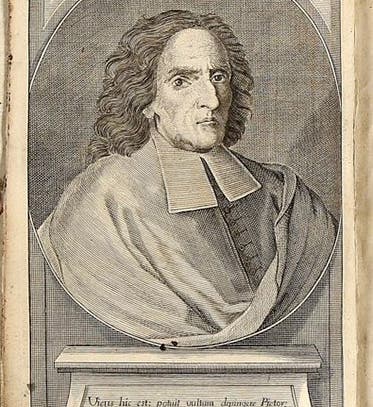
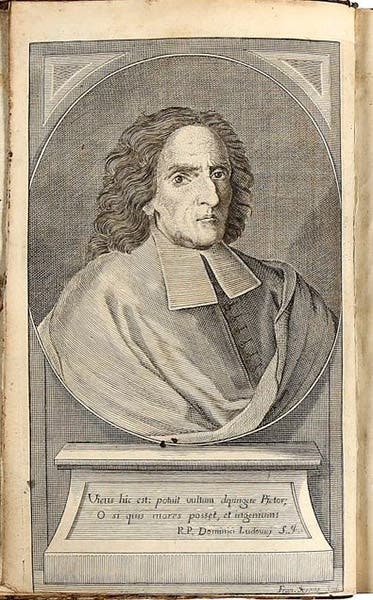
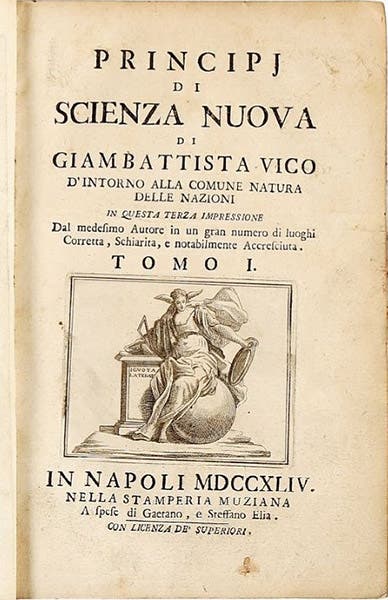
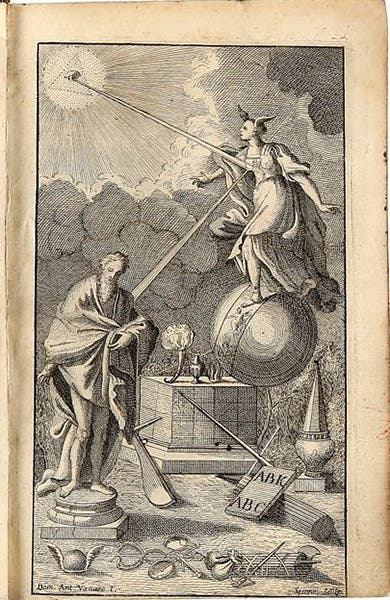
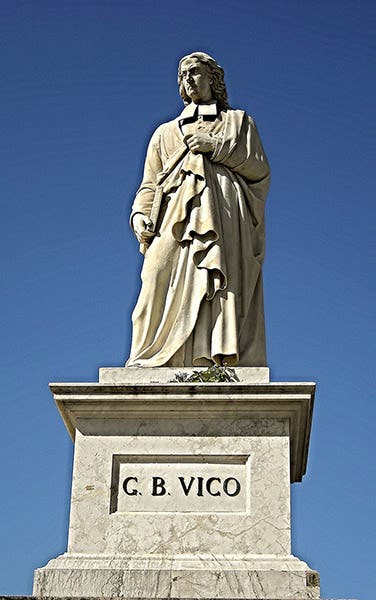

![Andromeda and Perseus, constellations figured by James Thornhill, with star positions determined by John Flamsteed, in Atlas coelestis, plate [15], 1729 (Linda Hall Library)](https://assets-us-01.kc-usercontent.com:443/9dd25524-761a-000d-d79f-86a5086d4774/1b30cfec-5be6-4297-a7fb-97255ba992e5/thornhill1.jpg?w=210&h=210&auto=format&fit=crop)


